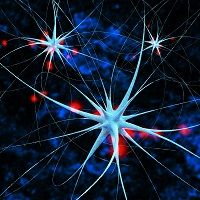Chemical Compound Relieves Inflammation in Patients with Multiple Sclerosis
The chemical compound indazole chloride (Ind-Cl) initiated long lasting relief in mice models of multiple sclerosis.

A specific chemical compound can decrease the effects of multiple sclerosis (MS), according to findings published in the December 1, 2014 edition of Proceedings of the National Academy of Sciences.
Researchers from the University of California, Riverside conducted a study of multiple sclerosis in mouse models. The researchers aimed to identify a drug to stimulate endogenous remyelination and/or minimized axonal degeneration to reduce the rate and degree of MS progression in patients. They found indazole chloride (Ind-Cl), which is a compound that stimulates estrogen receptor ERβ.
Using electrophysiology tests, they ensured the remyelinated axons were retransmitting impulses in the mice models. The remyelination occurred more efficiently in the mice after they were given Ind-Cl, which was activated 2 ways. First, it flowed through the immune system, which reduced inflammation in the brain and spinal cord. It also worked directly by remyelinating the axons, which the research team believes makes Ind-Cl especially promising.
“This drug, which we administered on transgenic mice, can potentially halt the symptoms and reverse ongoing motor deficit due to MS,” study leader Seema K. Tiwari-Woodruff, MS, PhD, an associate professor in the UC Riverside School of Medicine, said in a press release. “Our study shows that Ind-Cl can remyelinate axons which have gotten injured not just in MS but also traumatic brain injury and spinal cord injury.”
The researchers theorized that pregnant women with MS experience immense relief in their third trimester, which is likely due to high estrogen levels. In order to produce similar effects, researchers believed they could use Ind-Cl to stimulate the body’s estrogen receptors without the negative side effects of excessive estrogen.
“This readily suggests that estrogen could be given to MS patients, except that high levels of estrogen are linked to breast and uterine cancers,” Tiwari-Woodruff continued, noting the compound treatment worked after disease onset. “Further, men would largely be reluctant to take estrogen due to its feminizing effects.”
Another member of the research team, organic chemist John A. Katzenellenbogen, PhD, coauthored the paper — he has already identified 4 analogs that the research team can test on MS mice models and be even more effective. In the future, the team hopes their findings will contribute to clinical trials. They believe Ind-Cl can be developed into an oral treatment.